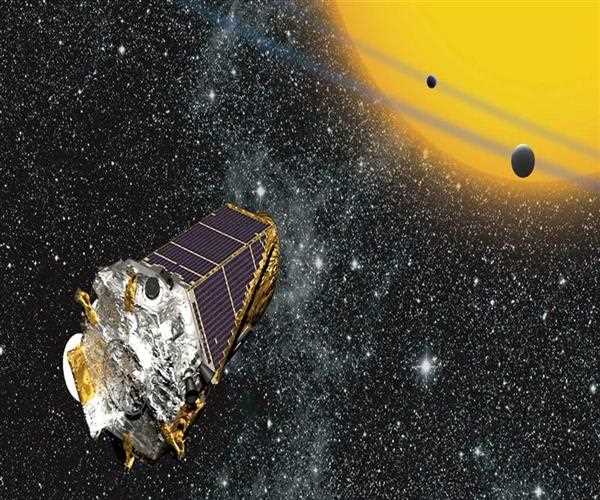
07-Apr-2023 , Updated on 4/10/2023 10:54:04 AM
Is it true? that we are alone in the universe?
The question of whether or not we are alone in the universe is one that has puzzled and intrigued humans for centuries. For many years, we had no way of even attempting to answer this question, but with advances in technology and the exploration of space, we are beginning to get a glimpse into the vast expanse beyond our planet.
To answer this question, we must first define what we mean by "alone." If we are asking whether or not there is other intelligent life out there in the universe, then the answer is currently unknown. However, if we broaden the question to ask whether or not there is any form of life beyond Earth, then the answer is likely yes.
One of the main reasons for this belief is the sheer size of the universe. There are an estimated 100 billion galaxies in the observable universe, with each galaxy containing billions of stars. If even a small fraction of these stars have planets in the habitable zone, where conditions are suitable for life to exist, then the likelihood of there being other forms of life out there increases dramatically.
In recent years, we have discovered thousands of exoplanets, planets outside of our solar system, with many of them being in the habitable zone. While we have yet to discover any definitive evidence of life on these planets, the discovery of so many potentially habitable planets suggests that the conditions for life are not unique to Earth.
Another factor that suggests the possibility of extraterrestrial life is the existence of extremophiles on Earth. These are organisms that are able to survive in extreme environments, such as in extreme heat or cold, high pressure, or highly acidic environments. If life can exist in such extreme conditions on Earth, it is not unreasonable to assume that it could also exist in similar conditions elsewhere in the universe.
There are also some tantalizing clues that suggest that there may have been life on Mars at some point in the past. While the planet is now a desolate and barren wasteland, there is evidence to suggest that it once had an atmosphere and flowing water, two key ingredients for life as we know it. There have been several missions to Mars in recent years, and while they have not found any definitive evidence of past or present life, they have found evidence of organic molecules, which are the building blocks of life.
However, despite these clues and the vast size of the universe, we have yet to discover any definitive evidence of intelligent life beyond Earth. The Search for Extraterrestrial Intelligence (SETI) has been searching for signs of intelligent life for over 50 years, but so far, they have not found anything conclusive.
This lack of evidence has led some scientists to propose the Fermi Paradox, which asks the question: if there are so many potentially habitable planets in the universe, why have we not yet found any evidence of intelligent life beyond Earth? There are many proposed explanations for this paradox, including the possibility that intelligent life may be rare, that civilization may self-destruct before they are able to explore space, or that we simply have not searched long enough.
It is also possible that our methods of searching for extraterrestrial life are simply not advanced enough. We are currently limited by the technology available to us, and it is possible that we will need to develop new technologies in order to detect signs of intelligent life beyond our planet.
In conclusion, while we have not yet found definitive evidence of intelligent life beyond Earth, the sheer size of the universe and the discovery of potentially habitable exoplanets suggest that it is unlikely that we are alone. The search for extraterrestrial life is ongoing, and with advances in technology, we may soon discover definitive proof of the existence of life beyond our planet. Until then, the question of whether or not we are alone in the universe remains one of the greatest mysteries

SEO and Content Writer
I am Drishan vig. I used to write blogs, articles, and stories in a way that entices the audience. I assure you that consistency, style, and tone must be met while writing the content. Working with the clients like bfc, varthana, ITC hotels, indusind, mumpa, mollydolly etc. has made me realized that writing content is not enough but doing seo is the first thing for it.
Comments
Join Our Newsletter
Subscribe to our newsletter to receive emails about new views posts, releases and updates.
Copyright 2010 - 2026 MindStick Software Pvt. Ltd. All Rights Reserved Privacy Policy | Terms & Conditions | Cookie Policy